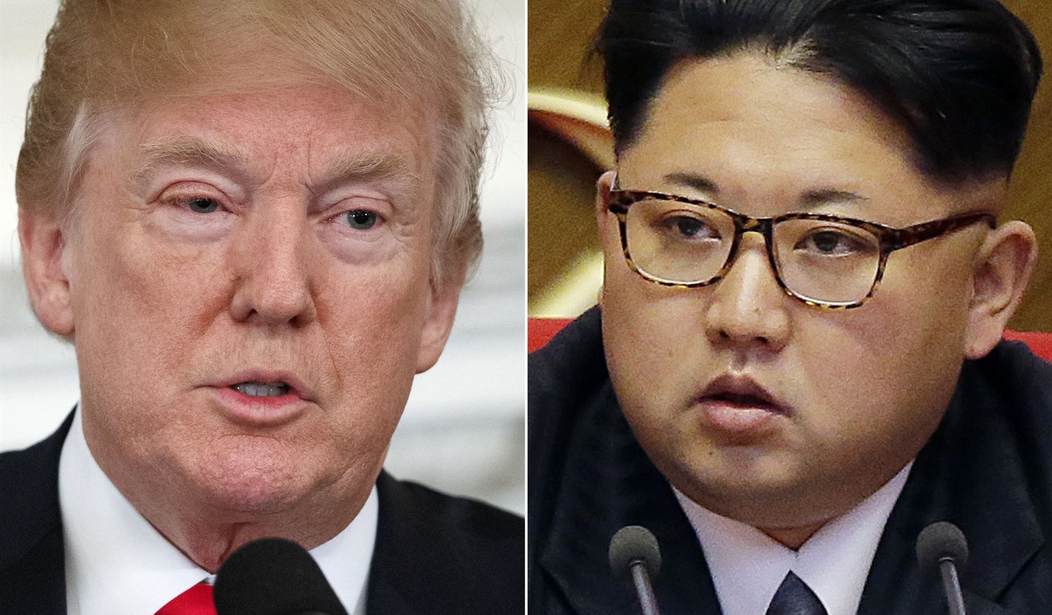North Korea has befuddled the United States and its Asian allies ever since North Korean leader Kim Il Sung launched the invasion of South Korea in June 1950.
Prior to the attack, the United States had sent inadvertent signals that it likely would not protect South Korea in the event of an unexpected invasion from the north. Not surprisingly, a war soon followed.
Gen. Douglas MacArthur, after leading a brilliant landing at Inchon in September 1950, chased the communists back north of the 38 parallel. In hot pursuit, MacArthur gambled that the Chinese would not invade, as he sought to conquer all of North Korea and unite the peninsula.
As MacArthur barreled northward to the Chinese border during the fall of 1950, the landscaped widened. American supply lines lengthened. MacArthur's forces thinned. The weather worsened. The days shortened.
Conventional wisdom had been that the Chinese would not invade, given America's near nuclear monopoly and likely air superiority. But in November 1950, what eventually would become nearly a million-man Chinese army did just that, pouring southward into the Korean peninsula.
The Chinese and North Koreans pushed the American and United Nations forces past the Demilitarized Zone at the 38th parallel. In January 1951, the communists retook Seoul after forcing the longest American military retreat in U.S. history.
With the arrival of military genius Gen. Matthew Ridgway, the U.S. regrouped. In early 1951, Western troops retook Seoul and drove communist forces back across the 38th Parallel. But despite continued success, Western forces chose not to reinvade the north and reunite the country.
Recommended
What followed the 1953 armistice that ended the Korean War was a tense Cold War standoff between two antithetical Korean countries for the next 65 years. North Korean assassinations, kidnappings and continual provocations continued throughout the "peace."
In 1994, the Bill Clinton administration gave massive aid to North Korea under the "Agreed Framework" deal, including heavy fuel oil. In exchange, North Korea promised to cease its ongoing nuclear proliferation.
Predictably, North Korean leadership lied. It eagerly took the aid only to further fast-track its nuclear weapons program.
The George W. Bush administration in 2003 arranged for "six-party talks" -- China, Japan, North Korea, Russia, South Korea and the U.S. -- to discourage North Korean nuclear proliferation. America and its allies once more provided aid and promised not to attack the Kim Jong Il regime. In exchange, Pyongyang agreed in writing to dismantle "all nuclear weapons and existing nuclear programs."
Once more, North Korea outsmarted Western naifs. It interpreted American concessions as weakness to be exploited rather than magnanimity to be reciprocated.
In 2006, North Korea detonated a nuclear device.
The Barack Obama administration learned nothing from the failures of the Clinton and Bush administrations. It followed the same old tired script of lecturing North Korea about its violations of international law. Then, predictably, Obama gave more aid to North Korea while pleading that it change its behavior and denuclearize. Obama's policy was called "strategic patience" -- a hope that if North Korea would not compromise, it at least would eventually collapse due to its corruption and malfeasance.
Obama misjudged North Korea as every other president had since the end of the Korean War. North Korea only further expanded its nuclear arsenal. Pyongyang always figured it could feign one of its "crazy" moods and then play on Western empathy for more money, all while China smiled and claimed ignorance.
Soon after Donald Trump was elected, North Korea announced that it was now capable of using its nuclear weaponry to take out cities on America's West Coast. But this time around, the U.S. did not offer bribes. Instead, it issued its own threats to North Korea. Trump himself assumed the unhinged role the Kims usually played, denigrating Kim Jong Un as "Little Rocket Man" and "short and fat."
But the Trump administration also lined up an international boycott of North Korea that is slowly squeezing the regime. Now, Kim Jong Un suddenly wants to talk. A collapsing North Korea once again claims it will denuclearize, but first it wants a historic photo-op with a U.S. president.
What have we learned about North Korea in the past 65 years? North Korea's cunningness usually trumps America's ideals of fair play and self-confidence. Empty threats do not work. Appeasement with infusions of food, cash and fuel makes things worse.
China finds its North Korea client useful. Russia is usually against anything we are for. South Korea appeases North Korea when it senses U.S. weakness. It stands firm only when America does.
What should Trump do after seven decades of North Korean aggression?
Ratchet up the embargo of North Korea. Do not give it any aid -- no matter the pleas and threats. Put more pressure on China. Do not barter with Pyongyang until it is proven that it has no more nukes.























Join the conversation as a VIP Member